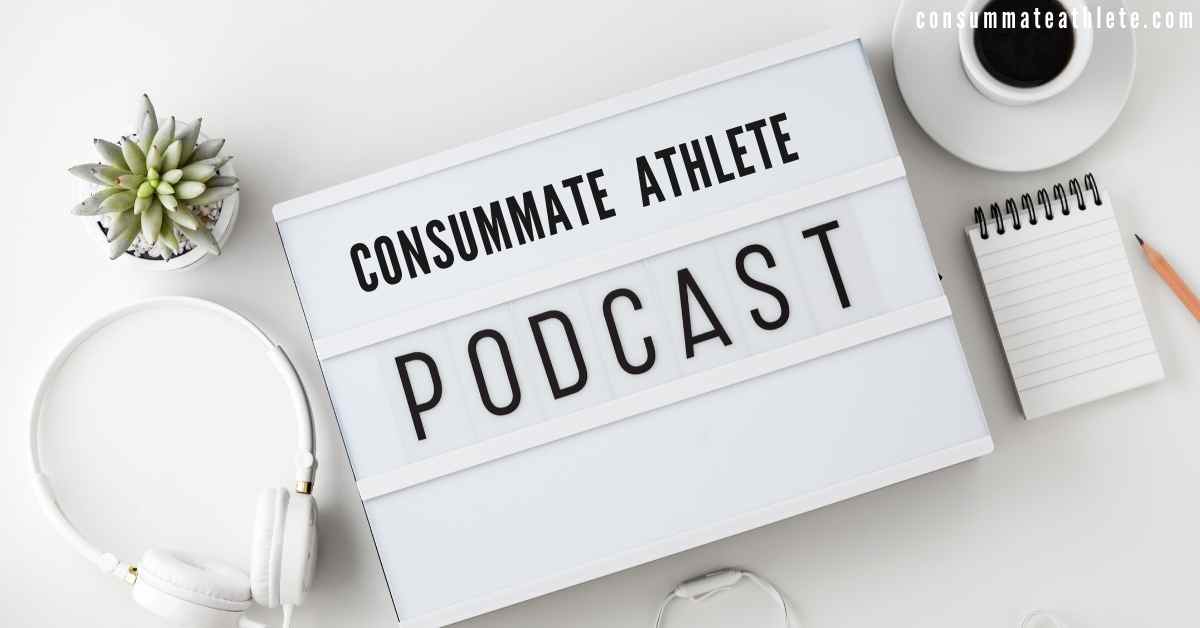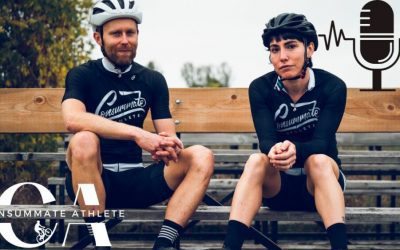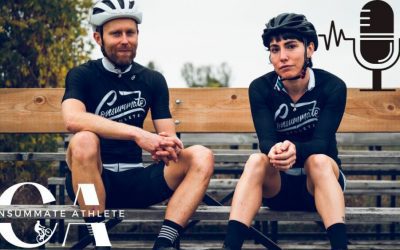Traci Stanard, a Sports Psychology Consultant, joins us from New Jersey today. She consults with athletes on their mental ‘game’ through her business Aspire Performance.
She was a youth gymnast with intense training schedules before going to college and taking up cycling.
We talk today about How a masters athlete or recreational athlete can use ‘mental skills’ or sports psych in their own world. Is it just for elites and Olympians? Or sick people? the power of believing you can do something, confidence, coach-athlete relationships, retirement, re-focus after a setback.
We also go into the power of believing you can do something, confidence, coach-athlete relationships, retirement, re-focus after a setback.
Of course, we are concerned about the infamous ‘Post-Ironman burnout’ and how that relates to struggling with retirements. Race-day nerves and how to set better goals and resolutions.
Tracey’s specialty is in the social aspects of the sport, the coach-athlete, athlete-athlete, manager to athlete etc.
HEALTH IQ : Please visit healthiq.com/capod
Download on Itunes (subscribe & leave a review Please!)
Download Android / Stream / Listen on-line
Download and view on Wide-Angle-Podium Site
Direct Download MP3 -> play on computer / put on older devices
BIO
Sports psychology consultant based in New Jersey. Background in elite gymnastics.
SHOW NOTES:
Article map my run – new years resolutions
Based in New Jersey
Company –> Aspire Performance website
Gymnastics as youth -> 11years old moved from YMCAto private club
-> 12 years old junior elite 20-25 hrs
-4-5hrs after school
-> more intense these days with homeschooling (she consults with these girls on sports psych)
->
-> make it or break it a TV show?
-> Thinking she could do it was important part
— benefit from belief
–> at 14-15 years started working with sports psych (as athlete) — subsequently (1991/1992) did well in Olympic, collegiate, national team
* cross-training tough with gymnastics
-The > peak for gymnastics 16-17. usually but collegiate is usually not as competitive, more fun and team competition
more fun and team competition
-> healthy retirement via collegiate
-> different social situation
-> she then transitioned to running (open to everyone) while pursue psych undergrad
-> intern in 4th year with children with behavioral problems.
-> Graduate program/masters are in psycho-social aspects of the sport. Dealing with social situations in sport (coach: athlete)
When she was training and worked with sports psych:
-> she helped make routine specific to her
-> wellness tips
->
Sports Psych consultant
– not same as a psychologist
– an individualized business, not all same
– a consultant can go into specifics of what athlete needs
– focus on sport, day in-day out
some athletes thrive in competition and some thrive in training so goals are in the area they struggle
– how can you convert feelings in strength to weakness
GOal Setting 101
– grocery store list is important. But often we just show up at store
– goal setting is showing up with a plan
– pen/pencil or electronic
– what you want to accomplish and the steps to add up
What is wrong with resolutions?
– what does it take to get there?
– what are behaviors
Example of training athlete who struggles with ‘tomorrow in will do it’
-> diet starts tomorrow / next time
-> shift focus to what do instead, not stop eating a cookie, will eat something else or do another routine (walk)
What can amateur athletes leverage?
– they are smart so understand but sticking to it and believing in themselves
– need to push thru on bad days
– accept the hard days, shouldn’t feel good all the time
– not every day is a PB
Race day nerves
-> dealing with fight/.flight
-> not a negative to say can’t wait till done or wait to see what happens
-> thrive off excitement, the feeling of finishing you crave … bring that thru day/ start /race
-> establish preperformance routine-> this helps those who love races but hate training to make every day like race day
– tricking the mind – pretend in practice, unique conversations we have with ourselves
Self-talk –
– Angry/upset response and playing past moment.
– immediately ask ‘what can do now’
– be action oriented
– plan cue words before
– this can refocus/focus
Post-ironman burnout
– socialized that goal means the end of everything or a lull.
– plan beyond, have other things to shift focus
– same with retirement from sport /job
coach-athlete relationship
– plan your own mental prep
– 5min of mindfulness
– think thru possible situations and reactions
– prevent negative or inefficient reactions
– This benefits athlete
Athletes can maximize coach relationship
– wait for 24 hrs before engaging at the personal performance. Then DO go in and talk about it
– ask “would you mind explaining’
– ask ” could we talk about”
– this opens up a relationship after a cool-down period and shows athlete wants to be there
How can someone work with Traci Stanard?
– aspireperformance.net
– aspire performance on facebook




